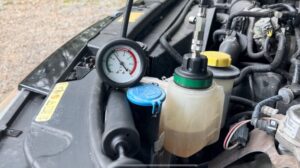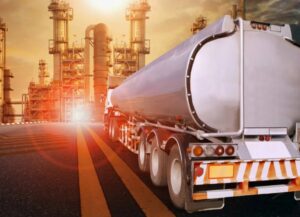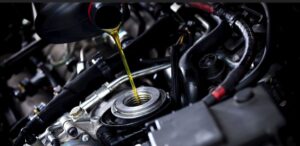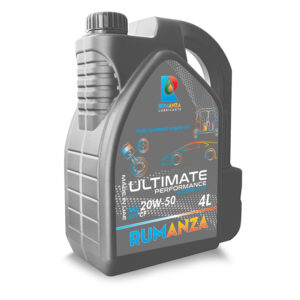Best CNG Engine Oil in UAE for Cars - Protect Your CNG Engine
The automotive landscape in the UAE is undergoing a quiet revolution. As fuel prices fluctuate and environmental consciousness grows, more and more drivers are making the intelligent switch to Compressed Natural Gas (CNG). CNG-powered cars offer significant cost savings on fuel and produce fewer emissions, making them an economically and ecologically sound choice.
However, this transition comes with a critical responsibility: understanding that a CNG engine is not the same as a conventional petrol engine. Its heart beats differently, and it demands a specialized lifeblood – the right CNG engine oil. Using the wrong oil is a recipe for reduced performance, increased wear, and potentially catastrophic engine failure.
This complete guide is designed to be your ultimate resource. We will delve into the unique challenges faced by CNG engines, decode the specifications you must look for, and help you select the best CNG engine oil to ensure your car runs smoothly and efficiently for years to come.
The CNG Engine - A Different Beast Altogether
To appreciate the need for specialized oil, we must first understand the fundamental ways a CNG engine operates differently from a conventional petrol engine. While they may look similar from the outside, the internal environment is drastically harsher.
The Combustion Chemistry: A Hotter, Drier Burn
CNG, primarily composed of Methane (CH₄), has a higher auto-ignition temperature (around 540°C) compared to petrol. While it burns cleaner, producing less carbon monoxide and unburnt hydrocarbons, the combustion flame front is hotter and propagates faster. This leads to elevated peak cylinder temperatures and increased thermal load on engine components like piston crowns, cylinder heads, and valves.
Impact on Oil: Conventional engine oils are not formulated for this sustained thermal onslaught. The base oil and additive package can oxidize and break down prematurely. Oxidized oil loses its viscosity, forms varnish and sludge, and becomes acidic, accelerating corrosion on engine bearings and other internal parts.
The Critical Issue of Valve Recession
This is the single most significant mechanical differentiator. In a petrol engine, the fuel is a liquid that is injected into the intake port or cylinder. This fuel contains tiny amounts of hydrocarbons that provide a slight but critical lubricating film on the valve stems and, more importantly, the valve seats.
CNG is a dry gas. It offers zero lubrication. During the engine’s cycle, the exhaust valve slams back into its seat thousands of times per minute. Without a protective lubricating film, this metal-to-metal contact causes microscopic welding and tearing. Over time, the valve physically recedes into the cylinder head—a phenomenon known as Valve Recession. This leads to:
Loss of compression
Reduced engine power and rough idling
Excessive oil consumption
Ultimately, catastrophic engine failure requiring a full cylinder head rebuild.
The Nitration and Acidity Problem
Air is roughly 78% nitrogen. The intense heat and pressure of CNG combustion cause this nitrogen and oxygen to bond, forming higher than usual levels of Nitrogen Oxides (NOx). These gases can blow past the piston rings and contaminate the engine oil in a process called nitration. Nitration causes the oil to thicken, become tar-like, and increase its corrosive potential. This acidic environment attacks soft metal bearings (like copper-lead) and other components, leading to premature wear.
The Imperative of Low-Ash Formulations
This point cannot be overstated. High-quality conventional oils often use metallic anti-wear additives like Zinc Dialkyl Dithiophosphate (ZDDP). While excellent for protecting camshafts and lifters, these additives leave behind a residue known as sulfated ash after combustion.
In a CNG engine, this ash has nowhere to go. It accumulates as hard, abrasive deposits on:
Piston Crowns: Acting as hot spots that cause pre-ignition (uncontrolled combustion, or “knocking”), which can shatter pistons.
Spark Plug Insulators: Leading to misfires and poor engine performance.
Catalytic Converters/Oxygen Sensors: Clogging and poisoning these expensive emissions control systems, rendering them useless and causing a check engine light.
Decoding the Engine Oil Bottle - Your Specification Checklist
Navigating the labels on an oil bottle is key to making an informed decision. Here’s a detailed breakdown of what to look for.
API Service Rating (American Petroleum Institute): This is the baseline standard. Look for the latest category, API SP. Introduced in 2020, API SP provides:
Enhanced Protection against Low-Speed Pre-Ignition (LSPI): A critical failure mode in turbocharged engines, which many modern CNG cars are.
Improved High-Temperature Deposit Control for pistons and turbochargers.
Increased Wear Protection for chains and other components.
Better Oil Stability and control of oil degradation.
ACEA Rating (European Automobile Manufacturers’ Association): Often more stringent than API, ACEA sequences are crucial. For CNG engines that may share design principles with European petrol and diesel engines, look for:
A3/B3 or A3/B4: Stable, stay-in-grade oil for high-performance engines, extended drain intervals, and severe operating conditions. Excellent for CNG.
A5/B5: Stable, stay-in-grade oil intended for use at extended drain intervals in high-performance engines designed for low-viscosity, fuel-efficient oils.
Low-SAPS Formulations (The Gold Standard for CNG): SAPS stands for Sulfated Ash, Phosphorus, and Sulfur. For CNG engines, you need a Low-SAPS or, ideally, an Ashless oil.
Low/No Ash: Prevents the damaging deposits on pistons, spark plugs, and catalytic converters.
Low Phosphorus & Sulfur: Protects the advanced emissions after-treatment systems that are vital for your car’s environmental compliance and performance.
Viscosity Grade: This is the oil’s “weight” (e.g., 5W-30, 0W-40). The first number (with the ‘W’ for Winter) indicates its flow at cold temperatures, and the second number indicates its thickness at operating temperature (100°C).
Crucial Advice: Always follow your vehicle manufacturer’s recommendation in the owner’s manual. The engineers who built your engine have calculated the perfect viscosity for its bearing tolerances and oil pump pressure. Using a thicker oil (e.g., 20W-50) in a modern engine that requires 5W-30 can reduce fuel efficiency and increase engine strain, while a thinner oil may not provide sufficient protection.
Spotlight on a Specialist: The Engineering Behind Rumanza Lubricants
In a market saturated with general-purpose lubricants, some brands distinguish themselves through dedicated research and development for niche applications. Rumanza Lubricants has positioned itself as one such specialist in the UAE and broader regional market, particularly for alternative fuels.
The formulation of a CNG-specific oil from a brand like Rumanza Lubricants is a exercise in precision engineering. It’s designed to directly counter the challenges outlined in Section 1:
Advanced Anti-Wear Additive Package: To combat valve recession, Rumanza Lubricants likely employs high-performance, ashless anti-wear agents. These form a resilient sacrificial film on the valve seats and stems, absorbing the impact and preventing metal-to-metal contact, thereby dramatically extending valve train life.
Superior Base Oil Selection: The foundation of any great lubricant is its base oil. A premium synthetic base oil, likely from Group IV (Polyalphaolefins) or Group V (Esters), provides an inherent resistance to thermal breakdown and oxidation. This ensures that Rumanza Lubricants’ CNG oil maintains its protective viscosity and does not form sludge, even under the extreme heat of UAE summers and CNG combustion.
Optimized Detergent and Dispersant Technology: While being low-ash, the oil must still keep the engine clean. Advanced detergent chemistry in a product like Rumanza Lubricants’ formulation helps prevent the formation of deposits in the ring belt area, while dispersants hold any potential contaminants in suspension until the next oil change.
Choosing a specialized oil from Rumanza Lubricants is not just a purchase; it’s an investment in a product built from the ground up to address the specific, severe-service requirements of a CNG engine in a demanding climate.
How to Choose the Best CNG Engine Oil for Your Car in the UAE
Making the final choice involves a simple, step-by-step process:
The Manual is Law: Before anything else, locate your owner’s manual and identify the manufacturer’s required viscosity grade and API/ACEA specifications.
Prioritize “CNG/LPG” Labeling: Filter your search to only include oils that explicitly state suitability for CNG, LPG, or Natural Gas Vehicles (NGV).
Verify the Specs: Cross-check the bottle against your manual’s requirements. Does it meet the viscosity? Does it meet or exceed the API (e.g., SP) and ACEA (e.g., A3/B4) specs?
Select a Reputable Brand: Choose from established, technologically advanced brands. This is where trusting a specialist like Rumanza Lubricants, or other major international brands known for their gas engine oils, pays dividends.
Change Intervals are Key: Do not exceed 8,000 km or 6 months, whichever comes first, unless your manual specifies a longer interval for a dedicated CNG oil. In the UAE’s harsh conditions, a conservative approach is the safest.
Use a New Oil Filter Always: A high-quality oil filter is essential. A cheap filter can bypass or clog, rendering your premium oil ineffective.
Head-to-Head: CNG Oil vs. Conventional Oil (A Comparative Analysis)
The table below provides a clear, at-a-glance comparison of the critical differences.
| Feature | Specialized CNG Engine Oil | Conventional Petrol Engine Oil | Why It Matters for Your CNG Car |
|---|---|---|---|
| Ash Content | Low or Zero SAPS | High/Medium SAPS | Prevents destructive deposits on pistons, spark plugs, and catalytic converters, avoiding pre-ignition and costly repairs. |
| Anti-Wear Additives | Ashless (e.g., specific polymers) | Often Metallic (e.g., ZDDP) | Prevents Valve Recession, the #1 cause of CNG engine failure, without creating harmful ash. |
| Thermal & Oxidative Stability | Exceptionally High | Moderate | Resists oil breakdown in high-heat CNG combustion, ensuring longer oil life and consistent protection. |
| Nitration Resistance | Specifically Formulated for it | Minimal Resistance | Prevents oil thickening and acidity caused by NOx contamination, protecting bearings from corrosion. |
| Price | Higher | Lower | An investment in long-term engine health. The higher initial cost prevents exponentially higher repair bills later. |
| Emissions System Compatibility | Fully Compatible | Can be Damaging | Protects your car’s catalytic converter and oxygen sensors, ensuring it passes emissions tests and runs efficiently. |
Pros and Cons of Using Specialized CNG Engine Oil
Pros:
Maximum Engine Longevity: Directly addresses and mitigates the primary failure modes of CNG engines (valve recession, deposit formation), potentially doubling or tripling the engine’s operational life.
Consistent Performance and Power: Clean combustion chambers and proper valve seating maintain engine compression and power output, preventing the slow degradation seen with incorrect oils.
Protection of Expensive Components: Safeguards your turbocharger (if equipped), catalytic converter, and oxygen sensors from ash-related damage, saving thousands of Dirhams in replacements.
Extended Drain Intervals (Potentially): Due to superior stability, high-quality synthetic CNG oils can often be used for the full manufacturer-recommended interval with confidence, though conservative practices are still advised.
Optimal Fuel Efficiency: A clean engine with properly lubricated components and the correct low-friction oil viscosity operates more efficiently, maximizing your CNG cost savings.
Cons:
Higher Initial Cost: Specialized CNG oils are more expensive per liter than standard mineral or semi-synthetic petrol oils.
Reduced Availability: While growing, they are not as universally available as conventional oils and may require a visit to a specialized dealer or distributor.
Overkill for Petrol-Only Engines: There is no benefit to using a low-ash CNG oil in a car that never runs on gas; the advanced anti-wear properties designed for valve seats are unnecessary for a standard petrol engine’s camshaft.
The UAE Factor: Why Climate Demands the Very Best
The UAE’s environment adds another layer of stress on your engine oil. Ambient temperatures regularly exceed 45°C in summer, and engines spend significant time idling in traffic or running at high speeds on highways. This external heat compounds the internal heat of CNG combustion, pushing oil temperatures to their absolute limits. A conventional mineral oil will simply not survive. This is why a full synthetic CNG-specific oil is not a luxury in the UAE; it is a necessity. Its molecular uniformity and purity provide a far wider operating temperature range and resistance to thermal breakdown.
Conclusion: An Investment in Performance and Peace of Mind
FAQs
Yes, absolutely. Even if you use petrol 50% of the time, the engine is still subjected to the harsh, dry, high-temperature CNG combustion cycle when running on gas. The oil in the sump is the same for both fuels, so it must be formulated to handle the more severe CNG conditions.
In an emergency, a full synthetic, low-SAPS petrol or diesel oil that meets the latest API SP and ACEA C2/C3 specifications would be a better temporary substitute than a high-ash conventional oil. However, sourcing the correct CNG-specific product should be your top priority.
Brands like Rumanza Lubricants have invested heavily in formulating for the specific conditions of the Middle East and South Asian markets, where CNG is prevalent. Their products are often competitively engineered against global giants, offering a specialized solution that understands regional fuel quality and climate extremes. Always compare the specifications on the bottle—the key metrics (SAPS levels, API/ACEA ratings) are what truly matter.

Radiator Stop Leak UAE: Quick Fix for Vehicle Cooling System Leaks
Radiator Stop Leak UAE: Quick Fix for Vehicle Cooling System Leaks Discover More Introduction: The Unforgiving UAE Climate and Your Vehicle’s Lifeline The United Arab Emirates’ automotive landscape is defined by extremes. Ambient temperatures that regularly surpass 45°C (113°F), coupled with intense urban congestion and long, high-speed desert drives, create a perfect storm of thermal stress for every vehicle. In this environment, your engine cooling system is not merely a subsystem; it is the single most critical component preventing catastrophic engine failure.

What Type of Transmission Oil in UAE Does My Car Need? Your Complete Guide
What Type of Transmission Oil in UAE Does My Car Need? Your Complete Guide Discover More Navigating the vast, sun-baked highways of the United Arab Emirates—from the dynamic urban sprawls of Dubai and Abu Dhabi to the majestic desert dunes and the tranquil mountain passes of the Hajar range—places extraordinary mechanical and thermal stress on every component of your vehicle. While conscientious drivers often prioritize engine oil changes, the vital lifeblood safeguarding the transmission, the complex heart of your car’s

Guide to UAE Turbine Oil Selection Application & Management for Industrial Facilities
Guide to UAE Turbine Oil Selection, Application, and Management for Industrial Facilities Discover More In the hyper-competitive industrial landscape of the United Arab Emirates, where operational excellence directly translates to economic advantage, turbine lubrication represents a critical nexus of reliability engineering and strategic asset management. This comprehensive guide, developed with technical insights from Rumanza Lubricants, provides an unprecedented deep dive into the science, selection criteria, and life-cycle management of turbine oils specifically engineered for the extreme operating conditions of the

Synthetic vs. Mineral Hydraulic Oil in UAE : Which is Best for Your Operation?
Synthetic vs. Mineral Hydraulic Oil in UAE : Which is Best for Your Operation? Discover More Across the dynamic landscape of the United Arab Emirates—from the megaprojects of Dubai Marina to the intricate conveyor systems of Jebel Ali Port, from the massive hydraulic shovels in Al Dhafra quarries to the precision automated lines in Abu Dhabi’s industrial cities—the silent, powerful force of hydraulics is indispensable. These systems convert fluid power into monumental force and precise motion. At the core of

What is a Pour Point Depressant? | Benefits, Uses & How It Works Mechanism
What is a Pour Point Depressant? | Benefits, Uses & How It Works Mechanism Discover More In the intricate world of lubricant formulation, few additives play as critical yet understated a role in cold-weather operability as Pour Point Depressants (PPDs). These specialized chemical compounds are the linchpin that prevents machinery from seizing up when temperatures plummet. This in-depth guide goes beyond the basics, exploring the sophisticated chemistry, detailed mechanism, nuanced benefits, and practical considerations of PPDs. We will also examine the

Guide to Gasoline Engine Oils for UAE’s Extreme Climate: Engineering Peak Performance
Gasoline Engine Oils for UAE’s Extreme Climate: Engineering Peak Performance Discover More In the heart of the Arabian Peninsula, the United Arab Emirates stands as a testament to human ambition, with its engineering marvels and endless highways. Yet, this environment of soaring achievement is also one of the most punishing on Earth for machinery. For your vehicle—whether a nimble city sedan, a powerful family SUV, or a high-performance sports car—the UAE’s climate is a relentless adversary. The choice of engine

What are Polyol Ester Oils & Lubricants – Properties & Applications
What are Polyol Ester Oils & Lubricants – Properties & Applications Discover More In the intricate world of industrial machinery, automotive engines, and advanced refrigeration systems, the choice of lubricant is not merely a maintenance task—it’s a critical engineering decision. While conventional mineral oils have served us for over a century, the demands of modern technology require fluids that can perform under extreme pressure, temperature, and environmental stress. This is where synthetic lubricants, specifically Polyol Ester oils, come to the forefront.

Guide to Choosing the Right Lithium Complex Grease in UAE
Guide to Choosing the Right Lithium Complex Grease in UAE for Unbeatable Performance Discover More In the heart of a region defined by its ambition and extreme climate, the machinery that builds and powers the UAE operates under immense pressure. From the towering cranes sculpting Dubai’s skyline to the massive haul trucks in Abu Dhabi’s industrial zones and the relentless conveyor systems in Jebel Ali Port, every moving part is a critical link in the chain of progress. Protecting these

Lithium Grease UAE – Buy Multi-Purpose Lubricant Grease
Lithium Grease UAE – Buy Multi-Purpose Lubricant Grease Discover More In the relentless engine of the United Arab Emirates’ economy—where monumental construction, non-stop logistics, and a climate of extreme heat and abrasive sand are the norm—the battle against friction and corrosion is perpetual. The integrity of a construction crane’s slewing ring, the smooth operation of a delivery fleet’s wheel bearings, and the silent efficiency of a hotel’s HVAC system all hinge on a single, critical decision: the choice of lubricant.

Best CNG Engine Oil in UAE for Cars – Protect Your CNG Engine
Best CNG Engine Oil in UAE for Cars – Protect Your CNG Engine Discover More The automotive landscape in the UAE is undergoing a quiet revolution. As fuel prices fluctuate and environmental consciousness grows, more and more drivers are making the intelligent switch to Compressed Natural Gas (CNG). CNG-powered cars offer significant cost savings on fuel and produce fewer emissions, making them an economically and ecologically sound choice. However, this transition comes with a critical responsibility: understanding that a CNG
